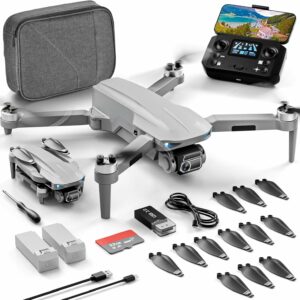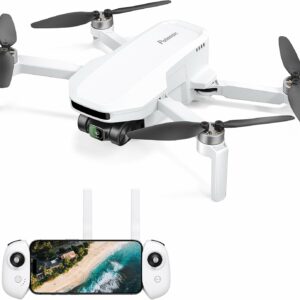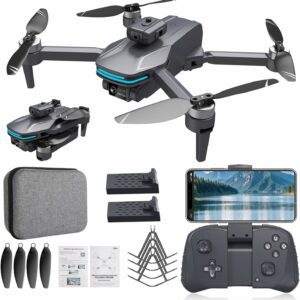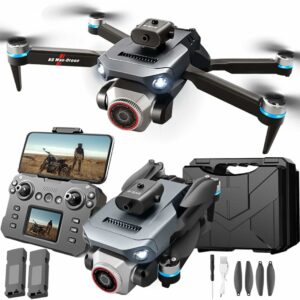Single-Rotor Drones
📸 What Are Single-Rotor Camera Drones?
Single-rotor drones employ one huge rotor (similar to a helicopter) and a small tail rotor for stability. Unlike multi-rotor drones, they offer improved efficiency, prolonged flight endurance, and the potential to carry larger or more specialized camera payloads.
This makes them perfect for difficult activities such as aerial LiDAR surveys, agricultural mapping, powerline inspection, and search & rescue operations.
Showing all 4 results

HHD HHD-N100-WGY-WJ28 Foldable Drone with Dual Cameras and Gesture Control
- Camera:
- Flight time (m):

Potensic ATOM LT GPS Drone – Lightweight, Long Flight Time, and High-Quality Imaging
- Camera:
- Flight time (m):

SUMEAUT S101S Foldable Drone with 1080P Camera – Beginner-Friendly Aerial Fun
- Camera:
- Flight time (m):
🛠️ Key Features of Single-Rotor Drones with Cameras
- Longer flight time (up to 1 hour or more with gas-powered models)
- Higher lift capacity for professional cameras, LiDAR, or multispectral sensors
- Greater wind resistance and outdoor durability
- Capable of autonomous flight planning & GPS waypoint navigation
- Suitable for vertical take-off and landing without a runway
- Customizable airframes for specific mission needs
🎯 Best Use Cases
Infrastructure Inspection
Single-rotor drones are used to inspect powerlines, pipelines, and towers with thermal or zoom cameras.
Precision Agriculture & Crop Monitoring
With multispectral imaging, they can scan large fields and analyze plant health, irrigation, and yield.
3D Mapping & Surveying
Ideal for LiDAR payloads or heavy mapping equipment requiring long flights across challenging terrain.
Search & Rescue Operations
Used in disaster zones where endurance, payload, and GPS precision are critical.
Heavy-Duty Aerial Photography
Carry cinema-grade cameras for stable, high-quality video footage in professional film production.
❓ Frequently Asked Questions (FAQs)
🔸 How is a single-rotor drone different from multi-rotor drones?
Single-rotor drones employ one huge spinning blade, like a helicopter, which allows for longer flight duration and higher lift—making them appropriate for industrial applications.
🔸 Are single-rotor drones useful for photography?
Yes, especially when utilising high-end or specialized cameras. They are commonly chosen for professional productions and aerial cinematography.
🔸 Are single-rotor drones hard to fly?
They are more complicated and powerful, needing more training or autonomous flight planning. Some types are semi-automated for easy operation.
🔸 What types of cameras can single-rotor drones carry?
They may carry a wide range—from DSLR and cinema cameras to multispectral, thermal, and LiDAR sensors.
🔸 Who should consider using a single-rotor camera drone?
They are perfect for experts in industries like agriculture, construction, utilities, film production, and environmental research.

